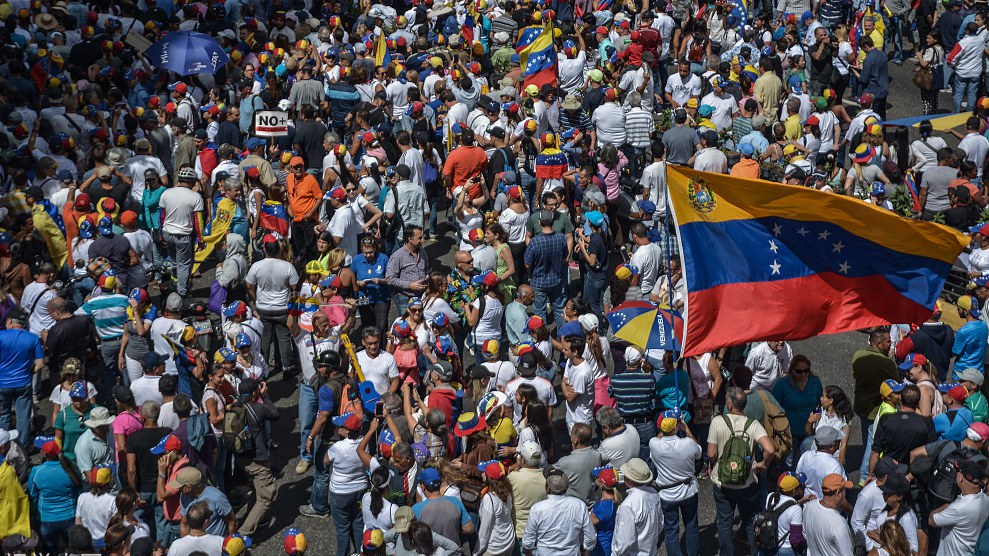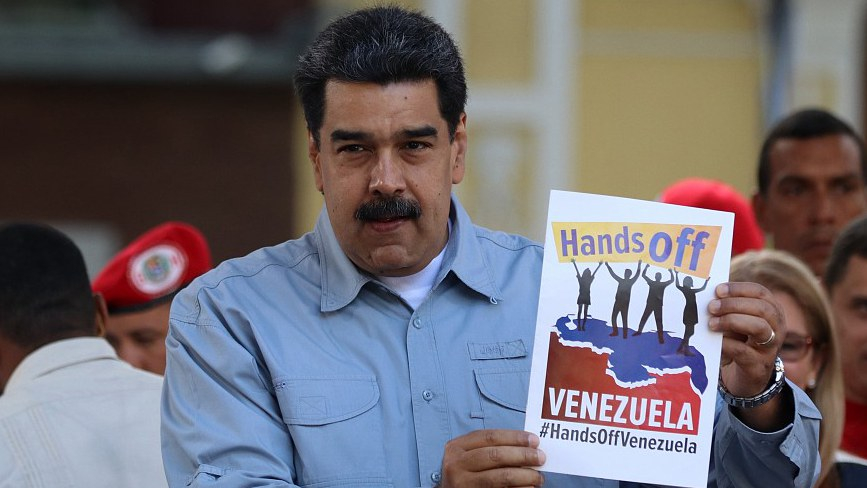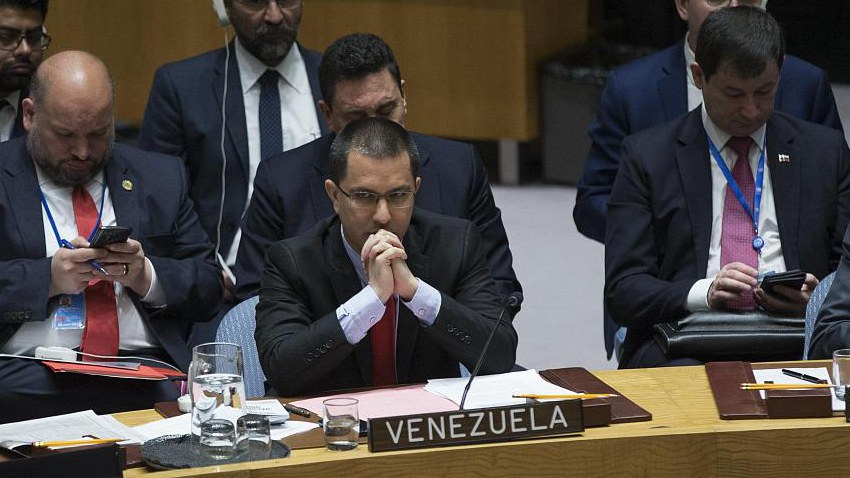
Perspective
10:05, 14-Feb-2019
The Heat: The use of violence in Venezuela would be avoided
Updated
11:24, 14-Feb-2019
The Heat
01:41

Tens of thousands of Venezuelans, splitting into two parts, occupied streets in Caracas, to protest against and to support President Nicolas Maduro.
The opposition leader, self-declared "interim president" Juan Guaido called for a new round of demonstrations to pressure Maduro to step down.
On the other side, Nicolas Maduro campaigned against the “imperialist intervention” of the United States which supported Guaido's presidency and adopted sanctions to the country.
Daily life in Caracas does not seem to be much affected by the political turbulence, and civil orders maintain. Lucas Koerner, political analyst and editor for Venezuelanalysis.com, indicates that Guaido has more or less only a virtual presence in the recent political marching. The number of participants also declines in comparison to the manifestation two weeks ago.
Discouragement, disorientation, and demobilization are spreading among opposition supporters. Guaido supporters do not have an idea on how and when Guaido is able to take over the government. Guaido does not show a clear agenda to pursue power as well. What he is doing is just to keep the pressure on the military leaders and to call for foreign interventions.

Venezuelan President Nicolas Maduro makes a speech as he launched signature campaign "Hands off Venezuela" against the U.S. intervention threats to Venezuela, at Bolivar Square in Caracas, Venezuela, February 7, 2019. /VCG Photo
Venezuelan President Nicolas Maduro makes a speech as he launched signature campaign "Hands off Venezuela" against the U.S. intervention threats to Venezuela, at Bolivar Square in Caracas, Venezuela, February 7, 2019. /VCG Photo
On the contrary, David Smolansky, the founding member of the Venezuelan Voluntad Popular political party, insists the movement is getting more and more support. The is no way back for the Guaido and his supporters. The citizens are mobilized to get on the streets. More than 60 countries in the world have supported Guaido. David also believes that the Maduro regime is not legitimate because of election fraud.
Joe Emersberger, a writer and political analyst, stepping out from the debate over legitimacy and looks through the lens of power politics. He points out that Guaido can achieve nothing without the help of the United States. Moreover, the political turbulence is the sixth time in the past 20 years that Venezuelan opposition has attempted to seize power by force, four of these times under a background of an economic crisis.
Yet Joe also blames the Maduro government for economic underperformance, which leads room for social grievances to grow and external actors to seek a way to intervene.
He believes that the political uncertainty of the Maduro government started in August 2017, when the U.S. adopted a stricter sanction on Venezuela.
Fernando Cutz, former director for South America, at the White House National Security Council, defends that the foreign policy of the U.S. does not come directly from someone in the white house. The foreign policy is a bipartisan product and a continuation of a general strategy that can trace back to the previous administration.

Venezuelan Minister of Foreign Affairs, Jorge Alberto Arreaza, addresses the UNSC meeting requested by the U.S. to offer a statement on the current situation in for Venezuela, in New York City, January 26, 2019. /VCG Photo
Venezuelan Minister of Foreign Affairs, Jorge Alberto Arreaza, addresses the UNSC meeting requested by the U.S. to offer a statement on the current situation in for Venezuela, in New York City, January 26, 2019. /VCG Photo
Fernando further believes that the endgame for foreign policy is to achieve democracy in Venezuela. The political will echo with other regional countries' desire-Many Latin America countries and the Lima group all showed an interest in propelling the democracy in Venezuela. What has changed is the pattern of revolt-from people versus their dictator to a region versus a tyrant.
Where Venezuela will go in the short future, both Joe and David talk about a possible election in the future. Yet, their evaluations differ drastically. When it comes to voting, David attacked Maduro's crime in political persecution and using negotiation and elections as a delay tactic to buy more time to send opponents to prisons.
However, Joe believes that Maduro still has firm public support, the popularity that Juan Guaido is incomparable. He took the example of the election in May 2018, when the most famous opponent Henri Falcon was far behind in votes.
Though the election is also highly disputed and the process might not be fair and transparent, no one at the time would believe that Falcon had a majority of support in Venezuela.
No matter it is a new election or further negotiation in Venezuela, all guests are trying to avert the possibility of the use of violence in the region.
Based on the U.S. interest, Fernando worries that if Maduro continues to rule the country, mass migration caused by the economic collapse will pour into neighboring countries and create a much more of a political crisis in the region.
According to Fernando, the goal of U.S. policy in Venezuela is to push Venezuelan society to reach democracy through a shock therapy instead of a long-lasting pain.
That is why the sanctions on Venezuela targeted individuals now expands to the whole oil industry.
(The Heat with Anand Naidoo is a 30-minute political talk show on CGTN. It airs weekdays at 7:00 a.m. BJT and 6:00 p.m. Eastern in the United States.)
(If you want to contribute and have specific expertise, please contact us at opinions@cgtn.com.)

SITEMAP
Copyright © 2018 CGTN. Beijing ICP prepared NO.16065310-3
Copyright © 2018 CGTN. Beijing ICP prepared NO.16065310-3